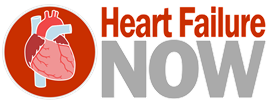Premier - Local Registered Dietitian
-
Sodium
Sodium is a chemical element with the symbol Na and atomic number 11. It is a soft, silvery-white, highly reactive metal.
-
Loading the player...
Heart Health and Salt Restrictions <p>Nurse Practitioner – Adult, talks about why and how heart patients can restrict their salt intake.</p>Nurse Practitioner – Adult, talks about why and how heart patients can restrict their salt intake.
-
Sodium Reduction in Heart Failure Patients
It’s really important to watch your sodium intake when it comes especially to heart failure. Fluid retention is one of the biggest issues that we have with heart failure patients. And we have the fluid that builds up in our feet, our legs, and our belly. And that makes you feel very full and bloated and uncomfortable, as well as the fluid that builds up in your lungs which makes it difficult for you to breathe.









